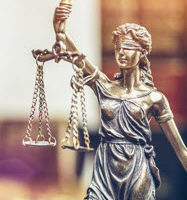Civil Rights/Discrimination Case to Be Heard By Supreme Court Will Have Far Reach

A case that will be heard by the U.S. Supreme Court this fall will have broad repercussions for civil rights; specifically, in examining whether the U.S. Constitution provides individuals with a right to discriminate in violation of the laws that apply to public accommodation; laws that govern businesses which are open to the public.
The case—Masterpiece Cake shop v. Colorado Civil Rights Commission—is based on a homosexual couple who was turned away by a baker after asking for a wedding cake because the baker claimed that he would not make wedding cakes for couples unless they were heterosexual couples due to his religious beliefs. In deciding the case, the Court will determine just what strength local state laws barring discrimination in places of public accommodation have, as well as whether businesses like these can argue that the Constitution’s free speech protections allow them to refuse service, regardless of local laws against discrimination.
Religion, Free Speech & Discrimination
These kinds of arguments have a dangerous history: Soon after the Federal Civil Rights Act was passed, one chain of restaurants claimed that serving Black customers violated the owner’s religious beliefs about integration. This argument ultimately failed in court. Similar arguments have arisen over the years regarding universities refusing to admit interracial couples or students who support interracial marriage; schools arguing that religion allows them to pay women less; newspapers treating “help wanted” ads for men and women differently; and law firms who refused to hire women. In every case, the courts refused to accept that the U.S. Constitution provided a justifiable avenue for these entities to discriminate.
However, when the case comes before the Supreme Court this fall, the arguments may fall under the First Amendment’s protection of free speech instead of its protection of religious freedom. This is because the owner of the baking company claims that his cakes are art, and the government cannot force him to use his creativity (i.e. convey a message) for an event that violates his religious faith (i.e. a homeosexual wedding). The Trump administration has already filed a brief urging the court to rule for him based on free speech grounds.
Civil Rights Lawyers Serving Florida and Massachusetts
Civil rights cases can be complex, especially in determining their reach. For example, in this case, if the Supreme Court sides with the baking company, the decision could have far-reaching implications that go above and beyond discriminating against people due to sexual orientation. Thus, you always want to ensure that you work with an experienced attorney in a civil rights case.
If you have suffered from a civil rights violation, contact us at the Baez Law Firm for a free consultation, and we will explain your rights and what options you have.
Resources:
scotusblog.com/wp-content/uploads/2017/09/16-111-tsac-USA.pdf
nytimes.com/2017/09/16/us/supreme-court-baker-same-sex-marriage.html
